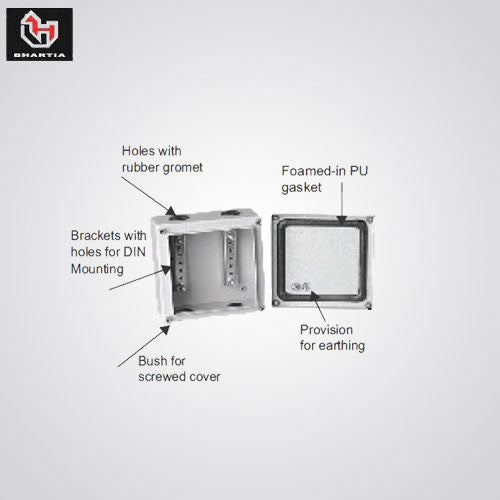
Terminal Box vs Junction Box
Share
In the realm of electrical installations, both junction boxes and terminal boxes are essential components for establishing secure and organized connections. While serving a similar fundamental purpose of housing and protecting electrical connections, they differ in design, application, and complexity.
- Primarily function as hubs for connecting and branching electrical wires, allowing for safe and contained splicing.
- Typically larger, offering more space for wire splicing and easier expansion or modifications to the wiring system.
- Commonly used in residential and commercial settings for basic wiring like lighting and outlets.
- May use wire nuts or clamps for connecting wires.
- Designed for terminating and organizing electrical wires in a structured manner, often employing terminal blocks for individual wire connections.
- Tend to be more compact and suitable for fixed wiring configurations where neatness and structured connections are paramount.
- Often found in industrial control panels, automation systems, and machinery where precision and maintainability are crucial.
- Inside a terminal box, you'll typically find terminal blocks, which provide individual slots for wires and offer secure, stable terminations.
The primary difference lies in their function: junction boxes are for wire splicing and distribution, while terminal boxes are for providing structured wire-to-terminal interfaces. Terminal boxes are more complex, offering modular connection points, while junction boxes are simpler, focused on joining wires. Terminal boxes are used in industrial settings like control panels and machinery, while junction boxes are common in home wiring and general installations. Terminal boxes are typically smaller and more compact, designed for fixed and organized wiring, whereas junction boxes are larger with more room for flexible wiring. Terminal boxes contain terminal blocks for connections, while junction boxes use wire nuts or clamps. Troubleshooting is easier with terminal boxes due to their organization, while it can be more challenging with junction boxes if wiring is not neat. Installation of terminal boxes takes more time and care compared to the quicker setup of junction boxes.
In essence, junction boxes facilitate general wire connections and distribution, offering flexibility, while terminal boxes provide secure, structured, and organized terminations, particularly in industrial and control system applications.
TERMINAL BOXES AND JUNCTION BOX [SALES AND SUPPORT]: 080-42100546
PHOENIX TECHNOLOGIES - AUTHORISED DISTRIBUTOR FOR BCH ELECTRIC LIMTED [KARNATAKA]
